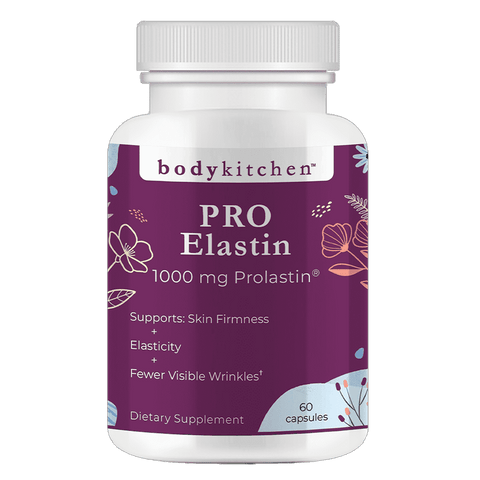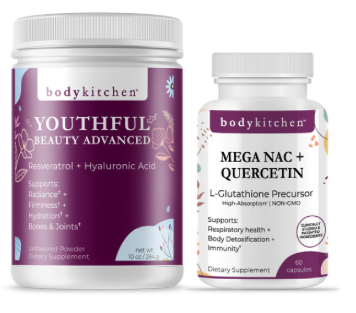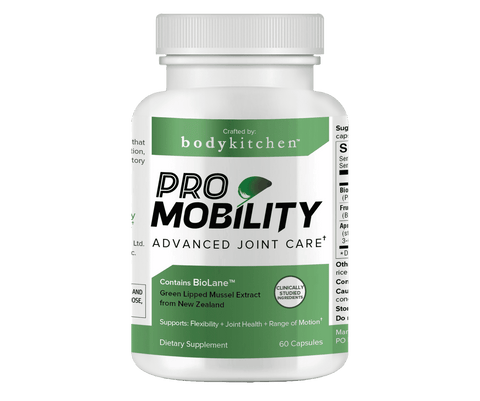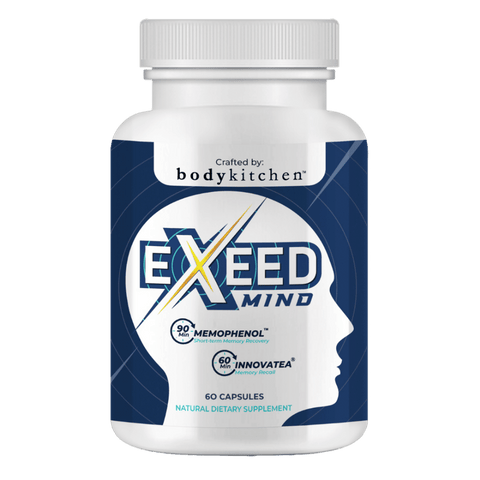How Probiotics Help Improve the Gut Microbiome
You've probably heard the saying ‘you are what you eat.’ Of course, that's true regarding the vitamins and minerals you get from the foods in your diet, but the meaning goes even deeper. What you eat can also impact your gut health, which can impact your overall health and well-being. Probiotics are one way to help maintain a healthy microbiome in your gut for potential health benefits. This post will discuss what they are and how they help.
What Is a Live Strain Probiotic?
A live-strain probiotic is a supplement that contains beneficial bacteria known as probiotics. The term live strain refers to the fact that the bacteria are alive. When you take a supplement containing these live strains, the beneficial species of bacteria can supplement the microorganisms already living inside your gut.
What Are Prebiotics vs. Probiotics?
You'll often see prebiotics and probiotics discussed together, but the terms don't refer to the same thing. Probiotics are the bacteria in the intestinal tract. Fermented foods like yogurt and sauerkraut can supply you with probiotics.
Prebiotics are food that contains substances that probiotics need to grow and thrive. Some known prebiotic foods include whole grains, onions, garlic, artichokes, soybeans, leafy greens, and bananas. Both prebiotics and probiotics also come in supplement form.
How Are Probiotics and Gut Health Linked?
Trillions of bacteria live in your digestive system. Together, they are called gut microbiota. Some of the microorganisms that call your gut home are beneficial, while others are harmful and can make you sick. The good news is that good probiotic bacteria can help to keep harmful bacteria in check. When enough probiotics are available to do this, you have a healthy gut balance. If the harmful bacteria are far more abundant, your gut will likely be imbalanced.
What Are the Benefits of a Healthy Gut Microbiome?
Promoting a healthy gut microbiome can lead to a variety of health benefits, including:
- Assistance with digestion: Your body needs probiotics to break down certain foods in your digestive system. Without a healthy gut microbiome, you may experience unpleasant symptoms like bloating, gas, and constipation.
- Better use of fiber: Fiber is one of the nutrients that depends on probiotics for digestion. If you have a proper gut balance, your body may be better able to process fiber. This is important because studies show that fiber can aid in weight management and reduce the risk of diabetes, heart disease, and some forms of cancer.
- Support for immune health: Much of your immune system is located in your gut. The probiotics in the digestive system play a role in immune cell communication. When you have a healthy gut microbiome, the signaling may be more efficient, leading to you developing fewer illnesses.
- Nervous system assistance: Newer studies suggest that gut microflora impact the functioning of the nervous system, particularly the brain. As a result, maintaining a balanced gut may support brain health and cognitive function.
How to Improve Your Gut Balance
To improve your gut health, you can follow these tips:
- Eat more probiotic and prebiotic foods.
- Cut down on your intake of artificial sweeteners, which have been shown to interfere with some probiotics.
- Take antibiotics only when it's medically necessary. Unfortunately, these drugs may kill probiotics and harmful bacteria, so you must only take them when your doctor prescribes the medications.
- Try probiotic supplements with live-strain bacteria to increase your body's supply of beneficial bacteria.
What to Look for in Probiotic Supplements
To improve your gut health through probiotic supplements, it's essential to understand that not all products are created equal. When comparing your options, consider the following:
- Strains: Products with more species of live strain probiotics may provide more enhanced benefits, as each has a unique gut function.
- Doses: The number of live-strain probiotics can vary significantly from product to product. Look for one that is backed by scientific research and provides clinically effective doses.
- Sources of probiotics: Where the probiotics come from can also affect the potency of supplements. Citrus probiotics have been shown in studies to better hold up to the effects of stomach acid, which could make them more likely to reach the colon where they are most needed.
- Storage: Some probiotic supplements must be refrigerated to preserve the beneficial living bacteria. This can make it more challenging to keep up with supplementation when you'r on the go.
















